Elevating the insights of climate justice leaders advancing equitable, community-based solutions to the climate crisis.
This program provides funding to help document and amplify “lessons learned” from U.S. climate justice organizations who are advancing equitable, community-based solutions to the climate crisis.

Supports climate justice leaders who prioritize addressing issues of racial, gender, and/or economic injustice and inequity in their work by documenting and lifting up their insights, lessons learned, and best practices for advancing just and equitable solutions to the climate crisis.

Supports the movement for climate justice in the U.S. by building a greater body of knowledge and resources (i.e., a documented base of evidence) that provides actionable insights about how to achieve and scale up just and equitable solutions to the climate crisis, to be housed in the Lab’s Resource Library.
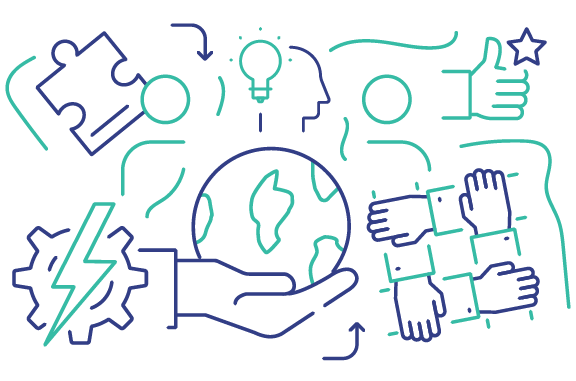
Sparks opportunities for cross-movement and cross-organizational learning, discussion, and iteration on lessons learned about achieving just climate solutions among the growing Lab community by documenting and elevating the critical experiences and knowledge of climate justice activists.
You can find the work of our Microgrant recipients below, who are taking creative and courageous steps to bring a just, equitable, and vibrant world into being.
- 2023 - 2024
-

Amanecer People’s Project
(El Paso, TX)
Amanecer People’s Project will complete a short documentary “The Definitive History of the Climate Charter,” a retrospective on how local, Latine, young organizers ran a bold, ambitious, power-threatening ballot initiative campaign for local-level climate action (the El Paso Climate Charter, Proposition K). It will compile footage collected during the span of the campaign, scripted narration to summarize events, and interviews of leaders of the Prop K campaign. This retrospective will cover the pitfalls, triumphs, and lessons learned during the campaign. It will outline the strategies deployed by polluting elites who utilized their political connections to spend nearly 2 million dollars against progressive climate action as well as the narrative tropes weaponized against the organization that ultimately led the community to vote against their own self-interest.

Groundwork Ohio River Valley
(Cincinnati, OH)
Groundwork Ohio River Valley will create a report on the findings of the Climate Advisory Group (CAG) program model from their Climate Safe Neighborhoods Program (CSN) initiative, a national effort through Groundwork USA to identify neighborhoods that are more vulnerable to the effects of climate change because of racial and social injustices, engage frontline resident leaders and partners, and ignite action towards climate resilience. The report will outlines the latest lessons learned and challenges encountered when implementing the community organizer model.
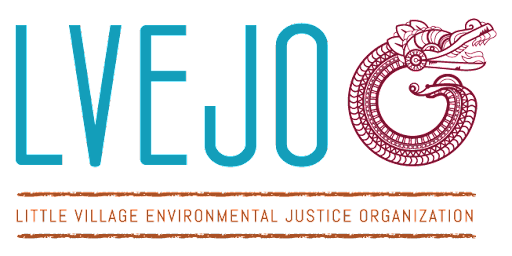
Little Village Environmental Justice Organization
(Chicago, IL)
Little Village Environmental Justice Organization will complete a case study highlighting the history of the campaign that led to the development and opening of La Villita Park in 2014. La Villita Park is the culmination of a 15-year fight to clean up the former Celotex site that was left abandoned with harmful contaminants and transform the 24 acres of land into an open green space for the residents of the Little Village neighborhood of Chicago, Illinois. This detailed study will cover their history in the Little Village community, the self-determination practices led by community members, the advocacy on a city level needed to advance the campaign, the community process for designing the park, and the lessons learned through each stage.
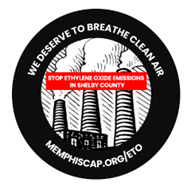
Memphis Community Against Pollution
(Memphis, TN)
Memphis Community Against Pollution will complete a short documentary on their campaign defeating Valero Energy Corporation’s and Plains All American’s multi-billion-dollar crude oil Byhalia Pipeline in 2020-2021. It will include clips of pivotal moments, interviews with land owners who were sued by the oil companies and key participants, and insights for communities currently fighting against pipelines. It will document the campaign from the beginning of the proposal to the end, focusing on strategy and key moments that allowed them to build momentum and coalitions, the roadblocks they encountered, and how they were able to pivot successfully.
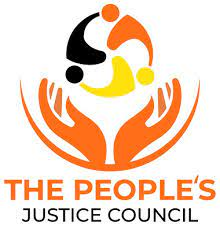
People’s Justice Council
(Birmingham, AL)
People’s Justice Council will complete a toolkit based on their “From Resilience to Restoration” (FRtR) initiative. This toolkit will help individual houses of faith across the South create their own actionable climate action restoration plans. It will contain detailed guidelines, resources, strategies, and successful case studies from their pilot cohort in the Gulf South. Furthermore, it will be equipped with training modules to foster grassroots leadership within these communities, enhancing their resilience and restoration.
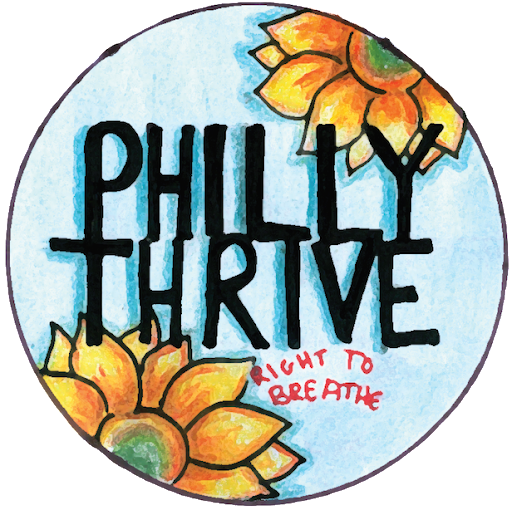
Philly Thrive
(Philadelphia, PA)
Philly Thrive will create a web archive gathering lessons learned from the “Right to Breathe Campaign” (2016-2019) which worked with the local South Philadelphia community to strategize, develop, and win several people-powered initiatives around the shutdown of the PES Refinery, the largest, oldest oil refinery on the east coast. This resource will be available for use for other communities as they also attempt to secure the closure of polluting oil refineries.
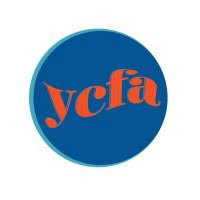
Youth Climate Finance Alliance
(National)
Youth Climate Finance Alliance will gather youth organizers from different parts of the youth climate movement across the country to create a "State of the US Youth Climate Movement". Their analysis will focus on the successes and failures of the youth climate movement on high school, college, and university campuses from around 2016-2022, formulate explanations for what conditions and choices brought about these outcomes, and drafting strategic pivots based on these analyses that can guide the work youth organizers are currently engaging in.
- 2022 - 2023
-
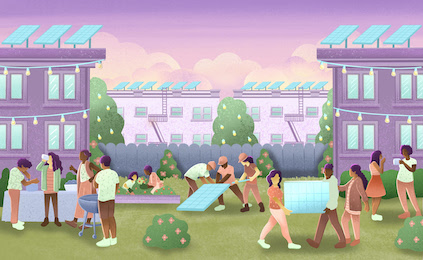
Cleveland Owns
A Case Study on the Founding of the Cleveland Solar Cooperative
Cleveland Owns incubated a grassroots community solar cooperative called Cleveland Solar Cooperative, a member-owned solar development organization through which member owners collectively fund and own rooftop solar arrays with the vision of achieving a more just and sustainable energy system through deep democracy and community stewardship of energy assets. They created a case study* documenting the initiation of the cooperative from its early organizing stages through its incorporation and illuminate successes and lessons learned along the way.
Image used with permission by People Power Solar Cooperative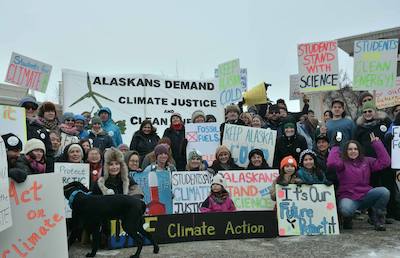
Fairbanks Climate Action Coalition
Cooperative Opportunity: Pushing for Cleaner Energy
Fairbanks Climate Action Coalition is a community-led grassroots organization working towards climate justice on Lower Tanana Dene lands in interior Alaska. Their Renewable Energy Working Group developed a report* to capture and share out the learnings of longest standing campaign organizing around their local electric cooperative, Golden Valley Electric Association (GVEA). GVEA provides electricity for almost 100,000 residents in Interior Alaska. The report shares reflections on how their bottom-up organizing structure led to wins, the challenges they faced, and the lessons that can be learned to succeed in future campaigns. It also contains actionable insights for other organizations and individuals working to affect change with energy co-ops.
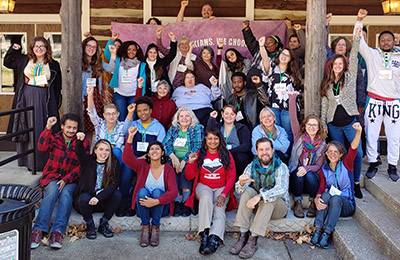
Kentuckians for the Commonwealth
The Power House Project: rural organizing, energy efficiency, and power-building in Kentucky
The Power House Project is an innovative organizing program which leverages energy efficiency workshops to build a movement of rural electric co-op member-owners, make energy efficiency accessible and feasible for low-income folks, and shift the narrative about energy efficiency and solar energy in eastern Kentucky communities. KTFC documented the initiative so that other advocates could iterate on their effort with an internal evaluation document*, Power Maps, new webpages on Energy Democracy and the project itself. and a Lab webinar*. KFTC staff and their partners at the Mountain Association for Community Economic Development shared reflections from the first two years of this project in a webinar* for the Lab community and the work was profiled in a Lab Insight*.
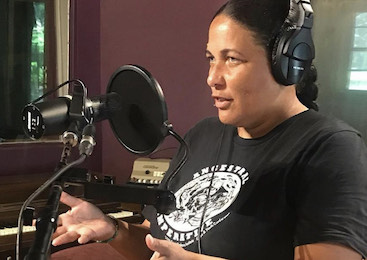
Movement Training Network
Failing to Save the Earth
Movement Training Network created a series of podcast episodes devoted to frontline voices that detail lessons learned from the L'eau Est La Vie Camp, a campaign led by local Native women fighting to protect the largest natural swamp in North America from the Bayou Bridge Pipeline in South Louisiana and provide guidance in building a successful "failure plan."
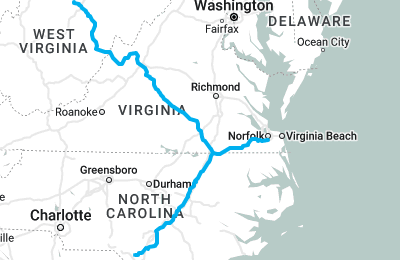
Robeson County Cooperative For Sustainable Development
Lessons Learned in Community Organizing through the Successful Campaign to Defeat the Atlantic Coast Pipeline
RCCSD created a report* documenting the 6-year, successful, multiracial, base-up campaign to halt the Atlantic Coast Pipeline and the local organizing work in Robeson County and throughout North Carolina. Its focus is on lessons learned for local, community-based organizing and how to scale up base-building into more broad-based influence and power on the local, state, and national level.
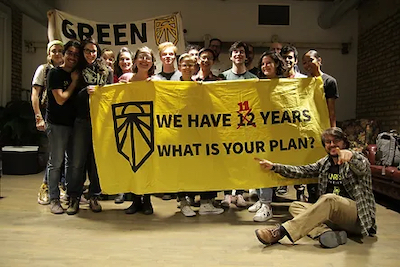
Sunrise Movement
Reflections, Lessons & Learnings on Multiracial, Cross-Class Movement Building
Sunrise Movement developed a report* sharing reflections on how Sunrise has made attempts to build a movement across race and class, and implications and learnings based on those experiments. This includes reflections on Sunrise's DNA (story, strategy, structure and culture), how they’ve inhibited and enabled their movement to build across race and class, and recommendations on multiracial, cross-class movement building.
- 2020 - 2021
-
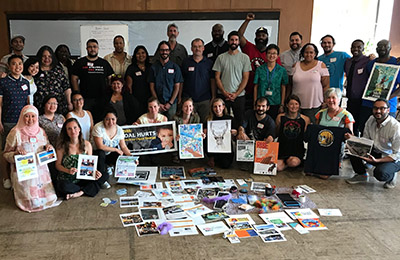
Energy Democracy Project
People’s Utility Justice Playbook and History of Utilities
The People’s Utility Justice Playbook is a counter-organizing tool developed by energy democracy organizers on the ground for communities seeking to win fights for utility justice, as utilities impose rate hikes and other hostile measures while failing to protect us in the face of climate change. It exposes the tactics from electric utilities that are undermining community’s efforts and suggests strategies and tactics to employ in return, so we can build our organizing strength—to not only fight back but also to build the democratic energy system for climate justice. An accompanying History of Utilities report summarizes the history of the industry for everyone to understand how our current energy system originated and to better understanding what we’re up against. They joined us on an interactive webinar* where members discussed how to use the Playbook in their own contexts and learned from folks engaged in utility-related fights across the country.
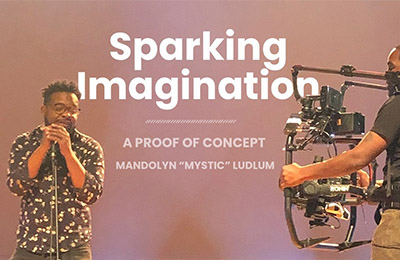
Hip Hop Caucus
Sparking Imagination: A Proof of Concept
This interactive research project contributes to the knowledge-base of cultural and creative organizing in the context of Hip Hop Caucus’ Think 100% Hampton Roads Organizing Project, which began with the goal of using comedy and cultural events to help mobilize Millennial and Gen Z Black voters in the Hampton Roads region for the 2019 statewide elections in Virginia. It shares the processes, experiences, wisdom, and “grows” and “glows” of this ongoing organizing project in the spirit of creating and sharing knowledge and cultures that serve collective futures. The lessons learned can help others effectively use creative and cultural organizing strategies to cultivate the power of the people, shift cultures, and foster the re-imagining of the narratives on which communities and what solutions should be centered within the movement for climate justice.
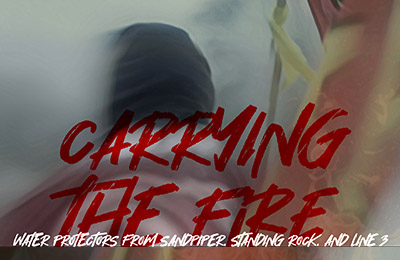
Honor the Earth
Carrying the Fire: Water Protectors from Sandpiper, Standing Rock, and Line 3
This short documentary highlights Water Protectors in opposition to pipelines, their experience in supportive roles, and what they were able to provide in lieu of risking their bodies. It explores the large portion of resistance based in healing and support that makes frontline resistance and action possible over the long haul. Intentionally cultivated support infrastructure is key to sustaining long-term community engagement and is directive for future pipeline fight strategies. From camps directed by Indigenous women to watch keepers, caregiving and support roles are critical infrastructure to these resistance efforts and important to uplift.
April 2023: The Lab acknowledges recent developments involving HTE. We do not condone sexual harassment in any form from our grantees or partners and we stand in solidarity with the victims and survivors. Please see NDN Collective's statement.
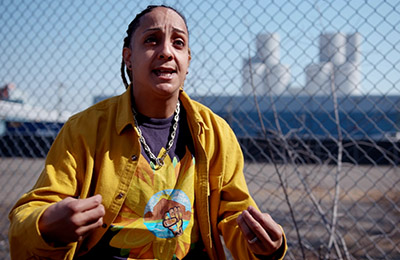
Ironbound Community Corporation
Big Win for Environmental Justice Organizers
In 2020, a group of New Jersey organizers helped get the country's most progressive environmental justice legislation at the time passed - S232. This short film delves into the role of community-based activists from Ironbound Community Corporation in moving the statewide legislation forward. By focusing on the community organizing perspective, this film offers insights and lessons learned from ICC so that other local groups feel empowered to take on statewide initiatives as well. Given community organizers know their neighbors, experience the impact of environmental injustice firsthand, and understand how policies affect people's lives, they are the experts whose voices are critically needed in halls of power. The accompanying discussion guide provides a road map for community organizers across the country who hope to translate local relationships into statewide legislative victories.
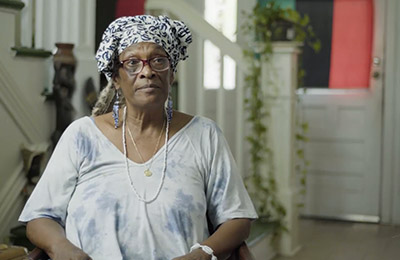
Partnership for Southern Equity
The 4th Arm
Community organizing has served as the 4th arm of government for black people seeking justice for over 150 years. This documentary highlights stories from the frontlines in Georgia, the epicenter of community organizing in the American South. It follows three organizers, from an elder in the movement to an emerging leader, and their community-building work. The film explores how centering values and lived experience is so critical to the work of organizing and central to our ability to achieve the goals of energy and climate justice. When Black communities, Indigenous peoples and communities of color are authentically and thoughtfully engaged through organizing, we can win on climate and create systemic change.

Uplift Climate
Youth Autonomous Organizing
This organizing zine and webpage showcases art, interviews, and how-to articles from young people across the Southwest to celebrate Uplift Climate’s inception and to support others in doing similar youth-led work. This resource serves as guide for young organizers so they feel empowered in having their autonomy respected in the wider multigenerational movement and for those who want to create youth-led groups. It also serves as a learning tool for older, more established organizations to learn from and honor frontline youth perspectives. By bringing together youth voices and older "movement elders”, Uplift bridges age gaps by bringing older adults and young people together to collectively talk about and share climate crisis solutions in their region. Lyrica Maldonado of Uplift Climate shared her reflections and lessons learned from the climate movement youth in a Lab Insight*.
- 2020 - 2021
-
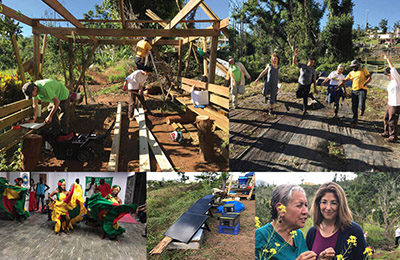
Climate Justice Alliance
Our Power Puerto Rico: Moving Towards a Just Recovery
This multimedia report provides a comprehensive case study of the Our Power Puerto Rico campaign as a model for Just Recovery, an effective and innovative tool for climate adaptation that integrates many sectors of the economy to include energy democracy, food sovereignty, rural infrastructure and community self-determination. It introduces the Just Recovery framework, an approach to disaster response informed by grassroots rapid response work after extreme flooding in Louisiana in 2016, and Hurricanes Harvey and María in 2017. Our conversation together addressed how climate advocates can advance just, equitable, and community-based disaster recovery.
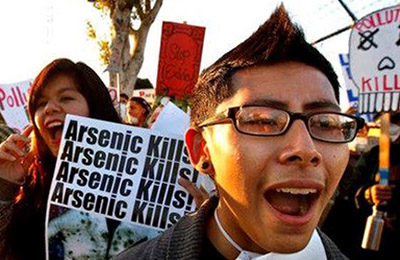
Communities for a Better Environment
Opposing major fossil fuel expansions: Insights & lessons learned
CBE has a mission to build people’s power in California’s communities of color and low income communities to achieve environmental health and justice by preventing and reducing pollution and building green, healthy and sustainable communities and environments. This campaign case study* details lessons learned, successful and less successful tactics, and challenges in the first chapter of efforts to stop the proposed expansion of the Tesoro-BP Los Angeles refinery, as well as tricks the companies used to push their agenda.

Kentuckians for the Commonwealth
The Power House Project: rural organizing, energy efficiency, and power-building in Kentucky
The Power House Project is an innovative organizing program which leverages energy efficiency workshops to build a movement of rural electric co-op member-owners, make energy efficiency accessible and feasible for low-income folks, and shift the narrative about energy efficiency and solar energy in eastern Kentucky communities. KTFC documented the initiative so that other advocates could iterate on their effort with an internal evaluation document*, Power Maps, new webpages on Energy Democracy and the project itself. and a Lab webinar*. KFTC staff and their partners at the Mountain Association for Community Economic Development shared reflections from the first two years of this project in a webinar* for the Lab community and the work was profiled in a Lab Insight*.
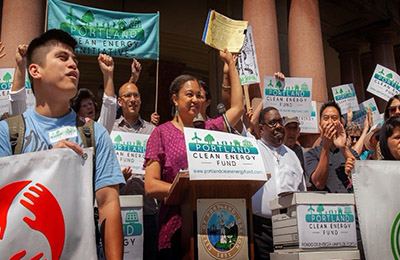
Portland Clean Energy Fund
A Template for Change: The Portland Clean Energy Fund as a Local Model for a Green New Deal
The PCEF produced a detailed case study (and later, an Executive Summary) on how they secured a landslide ballot measure victory that raises millions annually to support local clean energy and addresses climate, economic, and racial justice. The steering committee joined us on a webinar to share their firsthand campaign experience on how the community-led coalition was able to win at the ballot box. We then had a follow up conversation sharing new developments and lessons learned from implementation side and what it would take to replicate this winning model in other contexts.
*This resource is accessible to Lab members only. Apply here if you'd like to become a Lab member.